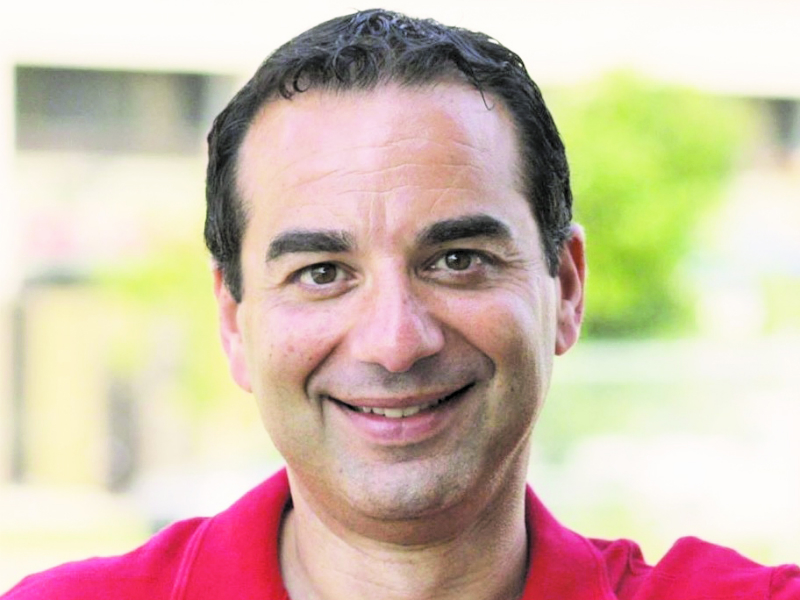A Liberal member of Parliament is voicing his displeasure with Elections Canada, as one of the agency’s policies will leave observant Jewish voters with limited options for casting their ballots in the upcoming federal election on Oct. 21, which this year coincides with the holiday of Shemini Atzeret.
In an April 16 letter to Stéphane Perrault, Canada’s chief electoral officer, York Centre MP Michael Levitt pointed out that the Canada Elections Act fixes the date for a federal election on the third Monday in October. The act, he added, also dictates that advance polls take place on certain days. This year, those dates fall on Oct. 11-14, comprising erev Shabbat, Shabbat, erev Sukkot and the first day of Sukkot.
“This timing poses a significant challenge for religiously observant Jewish Canadians,” said Levitt, “in that it dramatically restricts their ability to vote in this year’s general election and fully participate in our democracy.”
Elections Canada has promised to make voting “as inclusive and accessible as possible,” and said that, as it has done in the past, “we will reach out to the Jewish community … to ensure that voters who cannot vote on election day know that they have other voting options.”
Those alternatives include advance polls, voting by mail, and a “special” balloting service at post-secondary schools, Elections Canada spokesperson Ghislain Desjardins told The CJN.
READ: QUEBEC’S HIGH HOLIDAYS ELECTION MEANT MANY COULDN’T VOTE: COMPLAINT
In a statement to The CJN, Levitt said he was disappointed by Elections Canada’s response, “which doesn’t seem to appreciate that the same issue that affects religiously observant Jewish voters on election day also affects the advance polls that, by law, will fall on Shabbat and Sukkot this year, and are not an adequate accommodation.”
He said the timing of the advance polls limits observant Jews to one quarter of the period normally available to vote.
Desjardins outlined other options for observant voters, saying they can cast ballots at any of 500-plus local Elections Canada offices, any time from the drop of the writ until Oct. 15 “with a redesigned faster service model.”
He said Elections Canada will use “a one-stop shop approach” to improve service to electors in their local Elections Canada office. “One agent can now add or update your information on the list of electors and register you to vote by special ballot.”
Desjardins pointed out that in the last general election, Elections Canada offered special services in 39 post-secondary institutions across the country. For the 2019 vote, the agency is working to expand those services to more than 115 campuses across Canada.
“Using the same new one-stop shop approach as our local offices, electors can vote on campus at more locations as an early voting option,” Desjardins stated. On-campus voting will be available on select days to be announced later.
If voting by mail, special ballots can be applied for until Oct. 15 and can be received until Oct. 21, Desjardins said.
“We are working with national associations representing different Jewish communities at the national and local level to ensure that all electors are informed about when, where and ways to vote,” he said.
Levitt noted that Elections Canada’s response came only two days after his letter to Perrault, and he remains “hopeful that they are actively investigating this issue in much more depth so that their formal response will be more fully considered.
“Any solution to this problem must ensure that religiously observant Jewish voters have an equal opportunity to vote and do not have their right to vote unfairly limited.”
Levitt also pointed out that the law states the date for an election can be moved if it conflicts “with a day of cultural or religious significance.”
Without intervention, “religiously observant Jewish Canadians will have their ability to vote vastly restricted and would be forced to vote well ahead of other Canadians a week before the election campaign ends,” Levitt wrote.
The conflict this year was first raised late last summer by the Centre for Israel and Jewish Affairs (CIJA), which wrote to Perrault to point out that many activities, including work and travel, are prohibited on Shemini Atzeret.
In a statement to The CJN, CIJA CEO Shimon Fogel said his group is emphasizing the need “for a substantial campaign within the Jewish community to increase public awareness of voting options as well as access to advance polls outside Shabbat and yom tov days.”
A few weeks ago, the official in charge of Quebec’s elections apologized for difficulties many Jewish voters faced in last fall’s provincial election, which also fell on Shemini Atzeret.
The 2008 federal election clashed with the first day of Sukkot. Advance polls were held a week before that date, and Jewish voter turnout was robust.
Ontario’s provincial election in 2007 conflicted with Shemini Atzeret, resulting in the election date being moved from Oct. 4 to Oct. 10.
